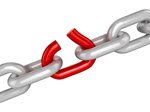 With my recent website move I thought I better check for broken links, in case I had screwed anything up during the transfer. The last few times I’ve done this I’ve used SiteCrawl, which seems to do a decent job.
With my recent website move I thought I better check for broken links, in case I had screwed anything up during the transfer. The last few times I’ve done this I’ve used SiteCrawl, which seems to do a decent job.
After the scan had finished I looked through the results and had a couple of broken internal links and 171 broken external links. Can you guess where the vast majority of the broken external links were pointing to? Yes, it was Oracle documentation. A quick search on my blog reveals about six rants I’ve posted about this over the years. There have been many more incidents of course.
Fixing this stuff is very time consuming and boring. What’s worse, it robs me of time I could spend on creating new content.
I’m guessing most content producers don’t go back and check for broken links. Oracle certainly don’t because I see them all the time in whitepapers, articles and forum entries. The result of this is a sea of helpful content produced by the community that are littered with broken links to Oracle content. It lowers the value of the community content, through no fault of the content producer.
Oracle. Please stop doing this! You are constantly devaluing the content produced by us in the community!
Cheers
Tim…
Update: You should probably read this by Kim Berg Hansen.
 I got some feedback from the Oracle documentation team, based on my
I got some feedback from the Oracle documentation team, based on my